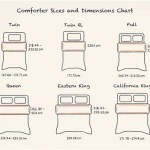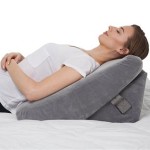Do Mattress Covers Stop Bed Bugs?
Bed bugs are tiny, parasitic insects that feed on human blood. They are notorious for infesting mattresses, making it difficult to get rid of them. While mattress covers alone cannot completely eliminate bed bugs, they serve as a crucial component of a comprehensive bed bug control strategy. This article will explore the effectiveness of mattress covers in preventing and controlling bed bug infestations, explaining how they work and their limitations.
How Mattress Covers Help Prevent and Control Bed Bugs
Mattress covers, especially those specifically designed for bed bug protection, offer several benefits in the fight against these pesky pests:
-
Physical Barrier:
These covers create a tight-fitting barrier around the mattress, preventing bed bugs from accessing the mattress's fabric and nesting there. This barrier can significantly limit their ability to lay eggs and reproduce. -
Trapping Bed Bugs:
Some mattress covers are made with a special material that traps bed bugs, preventing them from escaping and spreading. This feature can help contain an infestation and make it easier to eliminate the bugs through other methods. -
Protection from Bites:
A properly fitted mattress cover can protect you from bed bug bites by preventing them from coming into direct contact with your skin. This is particularly important during the initial stages of an infestation or when you are trying to eliminate existing bed bugs.
Limitations of Mattress Covers
While mattress covers offer valuable protection, it is important to understand their limitations:
-
Not a Standalone Solution:
Mattress covers do not eliminate existing bed bugs. They work best in conjunction with other control measures, such as professional pest control services or DIY treatments. Using a cover alone will not solve an established infestation. -
Potential for Entry Points:
Bed bugs are resourceful and can sometimes find ways to enter the mattress even with a cover in place. Cracks or gaps in the cover, loose seams, or openings around the zipper can provide access for these insects. -
Limited Effectiveness Against Eggs:
While mattress covers can prevent bed bugs from laying eggs on the mattress surface, they may not be effective against eggs that have already been laid. These eggs can hatch and produce new bed bugs, even with a cover in place.
Choosing the Right Mattress Cover
Not all mattress covers are created equal. When choosing a mattress cover for bed bug protection, consider the following factors:
-
Material:
Look for covers made from a tightly woven fabric that is difficult for bed bugs to penetrate, ideally with a zipper that seals completely. Some covers are even treated with special insecticides. -
Fit:
The mattress cover should fit snugly around your mattress, without any gaps or loose areas. A poorly fitted cover can provide inadequate protection. -
Reviews:
Read reviews from other customers to see if the cover has been effective in controlling bed bugs and to understand their experiences.
In conclusion, mattress covers are an essential tool in the fight against bed bugs. They provide a physical barrier that limits the spread of these pests and can protect you from bites. However, it is crucial to remember that mattress covers are not a magical solution. They should be used in conjunction with other control measures and combined with proper hygiene practices to effectively manage a bed bug infestation.

Can You Still Get Bed Bugs With A Mattress Cover

The Best Mattress Covers For Bed Bug Protection

Do Mattress Protectors Prevent Bed Bugs Yes No Here S Why Ecoy

Do Bed Bug Covers Work Integrity Solutions

Bed Bugs Do Mattress Encasements Help Pest Management Professional

Are Dust Mite Proof Covers Bed Bug

9 Of The Best Bedbug Mattress Covers

Waterproof Bed Bug Dust Mite Cotton Mattress Protector Bluestone Target

Bed Bug Mattress Covers Proven To Stop Bugs

Are Bed Bug Mattress Covers Effective Encasing Stops Biting







